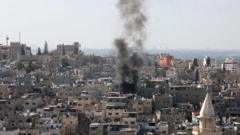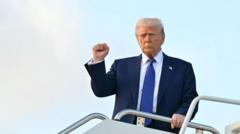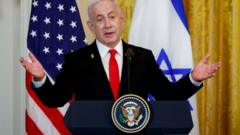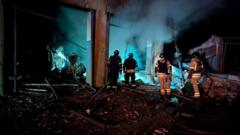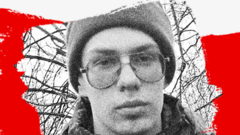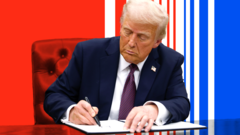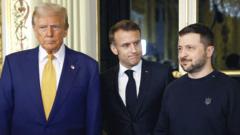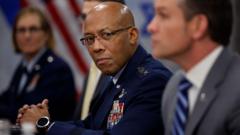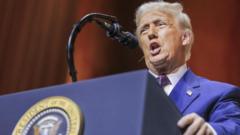Three years into the Ukraine invasion, Tver's residents portray a mix of acceptance and concern about the war, reflecting on their lives amid ongoing recruitment efforts while offering diverse opinions on US-Russia relations, including perceptions of Donald Trump's involvement.
Perspectives from Tver: Russians Weigh In on War and US Relations Amid Ongoing Conflict
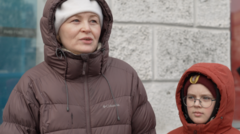
Perspectives from Tver: Russians Weigh In on War and US Relations Amid Ongoing Conflict
In Tver, Russia, residents express mixed feelings about the war in Ukraine as recruitment efforts ramp up and opinions on US President Trump unfold.
Driving into Tver, Russia, the military presence is palpable, with recruitment posters urging citizens to join the fight in Ukraine plastered across the city. Yet, for many locals, life appears to carry on as usual, distant from the frontline. “Just look around,” says Mikhail, a local educator, noting the everyday hustle of cars and open shops, underscoring a sense of normalcy amidst wartime.
However, for people like Anna, the conflict hits home; she mourns acquaintances who did not return from the battlefield, voicing her desire for peace. Anna, like many Russians, is following the developments involving Donald Trump and his overtures to Moscow, casting him as a “dark horse” whose intentions remain unclear.
In conversations, some residents echo state narratives that frame Russia as a defender of its people in Ukraine, highlighting a trend seen by societal analysts. “In a society, people always prefer to be in the mainstream,” suggests Andrei Kolesnikov, a journalist who views this alignment with official rhetoric as a method to simplify the complex reality of war.
Others, like Larissa and her husband Valery, are staunch advocates of the military operation, declaring their readiness to volunteer. Such sentiments may reflect a broader acceptance of the Kremlin’s messaging, illustrating the tension between personal experiences and collective beliefs about the “special military operation.”
Surveillance from police suddenly interrupts the reporters as they interview locals. Confirming suspicions fueled by the ongoing conflict, authorities inquire about their presence in Tver as state media captures the moment, reinforcing the former’s claim of “freedom of speech” amidst muzzled discourse often prevalent in authoritarian contexts.
Amid economic concerns stemming from the war, many civilians express hopes that a resolution could alleviate rising prices and hardships. Yulia voices these struggles, reflecting a growing anxiety about economic stability in a country preoccupied with conflict. Yet, local sentiment towards Trump, whom many perceive as lacking a cohesive peace strategy, reveals skepticism about international diplomatic shifts.
Mikhail encapsulates a common sentiment, stating, “Unfortunately, Trump hasn't got any plan. He is an improviser.” This commentary underscores a continued uncertainty as residents contemplate the implications of geopolitics on their lives and the unfolding war.




